|
Is mountain guiding ethical? Does the outdoor industry fit with the way that we approach access and enjoyment of our mountains? Do people in the professions of leading people on walks, guiding them on climbs or teaching them mountaineering skills add or take away from the traditions of our activities? You will probably have an instant reaction to these questions, but it is worth thinking about them a bit longer. After a conversation online, these topics came to my mind again. So, here are my thoughts. We have a tradition in the UK, and especially in Scotland, that is put into statute in the Land Reform Act of 2003 with the Scottish Outdoor Access Code (SOAC). It is similar in Access Areas in England and Wales. The SOAC principles are: • Respect the interests of other people. • Care for the environment. • Take responsibility for your own actions. We have the right to access most land in Scotland to do what we want, as long as we behave responsibly. What we’re thinking about here is this last bit, that we must take responsibility for our own actions, for example care for our own safety, keep alert for hazards and take special care with children. We also have a tradition of self-reliance. Our approach to climbing and walking should be that we are fully prepared and skilled for the route that we take on. We should not rely on outside assistance as a matter of course. There will not be navigation aids, shelter, food outlets on hand. It is down to us to learn the skills that we need, to carry the equipment and try to make sure that we are capable of the route we go for. On this background, hiring a guide to do much of this stuff for you does not fit with our traditional approach or our access code. If we hire someone more competent than us to take on a particular route that is beyond our current capability, we are not self-reliant, and we divest some of the responsibility to the guide. So, there is an argument that guiding does not fit with our mountaineering ethics. If we carry on with this argument though, it starts to break down. What if we go out with a friend who is better than us and who leads the hard pitches of a climb. Is this being self-reliant? Should we all go out by ourselves then? And if we are being completely responsible for our actions, mountain rescue is also unethical. If we want to be completely self-reliant, we should not call on mountain rescue if things go wrong, we should take responsibility for our actions and sort it out ourselves, or suffer the consequences. Clearly these are daft notions. Going out with friends or a club to learn your craft of mountaineering is a brilliant way to get into it and to progress. It’s how most of us start out, me included. We can learn a lot by ourselves, but it has inherent risks, it does not always go well, and you can get through the dangerous early stages of learning much more quickly by learning from someone with more experience than you. There is of course no suggestion that the amazing service provided by our mountain rescue teams is unethical! In fact, anyone out in the mountains who sees someone that needs help is very likely to feel a responsibility to help when they can. I am always deeply moved by the work of our voluntary rescue teams and of individuals who will go to offer help. It is a very positive aspect of our community that should be acknowledged far more than it is currently. So, while we aim to be self-reliant and responsible for our own actions, there are some cases when it is OK accept help from a more experienced friend, and I think that hiring a guide falls into this category. A small group or climbing pair will aim to be self-reliant, whatever the makeup of that group. In fact, we need experienced people to help new people into mountaineering, it is useful to have instructors and guides helping people learn their craft well, so that it does not become elitist. However, there is, potentially, a problem. Currently we have free access to our mountains as long as we take responsibility for our own actions. One aspect of this is that we can do whatever we want, as long as we accept the consequences (and as long as we respect the environment and other people). What I mean is that we can take on whatever challenge we like, any grade of climb, any length of walk or run. There is no certification required, no test that we have to pass, no statement of competence that needs to be presented to an authority to allow us to take part in any of these activities. In this regard, we have free access to do what we want. And this is a fundamental right that we need to preserve. We should celebrate this and come together to defend this right. We have had this right for a very long time so it would be easy to think that it is not under threat. Generally, I think this is right, but there have been a couple of worrying moments in recent years. A few years ago, after a spate of fatal avalanche accidents, there were calls for access to our mountains to be restricted to summer months on account of the burden placed on our rescue teams and NHS. The argument was that the cost of rescue and medical treatment is very high just for the sake of a few reckless, selfish climbers. Dorothy Grace Elder, a journalist and former SNP MSP said exactly this many times in 2013. Thankfully, nobody took this seriously and our access in winter has been retained. Much more recently, a few people have been arrested for culpable and reckless conduct after calling for mountain rescue. Most of these were aggravated by breaking covid travel restrictions, but at least one was not. This is a worry, and I hope it is not a trend. We do not want to be in a position of being unwilling to call for help when we need it due to the fear of being arrested. Police Scotland has reassured us that this is not the case, but these arrests do demonstrate that we need to make sure that our right to access is maintained in its current form. It would be a disaster if there were consequences to legitimately calling for help or if access was taken away from us when someone else decides that it is too dangerous. Equally, we do not want to have any requirement for certification, training or statement of competence in order to go climbing. Some other countries only allow people to climb certain peaks if they hire a qualified guide. I certainly don’t want any system like this in the UK. So, it seems to me that the current system is pretty good. In fact, I think it is world leading. As individuals we can do what we want as long as we follow the Scottish Outdoor Access Code. We can go out by ourselves in any conditions, or we can ask or hire someone to help us. This does not erode our principle of self-reliance, or in any way affect those who want to go out and do it all by themselves. In fact, I encourage everyone to go out and have adventures, I try to instil the confidence in my clients and anyone else that they can try stuff by themselves and that they should do this. It is brilliant for me to hear from my clients that they have been out climbing by themselves after we have been climbing together.
To me this does not seem like commodification of the mountains or of climbing. But of course, I would say that, I’m a guide. While I do advertise online and try to promote my services, when I am out guiding there is nothing commercial about what I do. Nearly all of my clients are committed walkers or climbers already and the rest want to be. Some of them are incredibly proficient with extensive experience. Climbing with me is just one part of their climbing activities. I am a strong defender of the Scottish Outdoor Access Code and of our ethics and principles of mountaineering, and I don’t think that the few people who hire guides are doing anything against these.
0 Comments
Your comment will be posted after it is approved.
Leave a Reply. |
AuthorMike Pescod Self reliance is a fundamental principle of mountaineering. By participating we accept this and take responsibility for the decisions we make. These blog posts and conditions reports are intended to help you make good decisions. They do not remove the need for you to make your own judgements when out in the hills.
Archives
March 2024
|
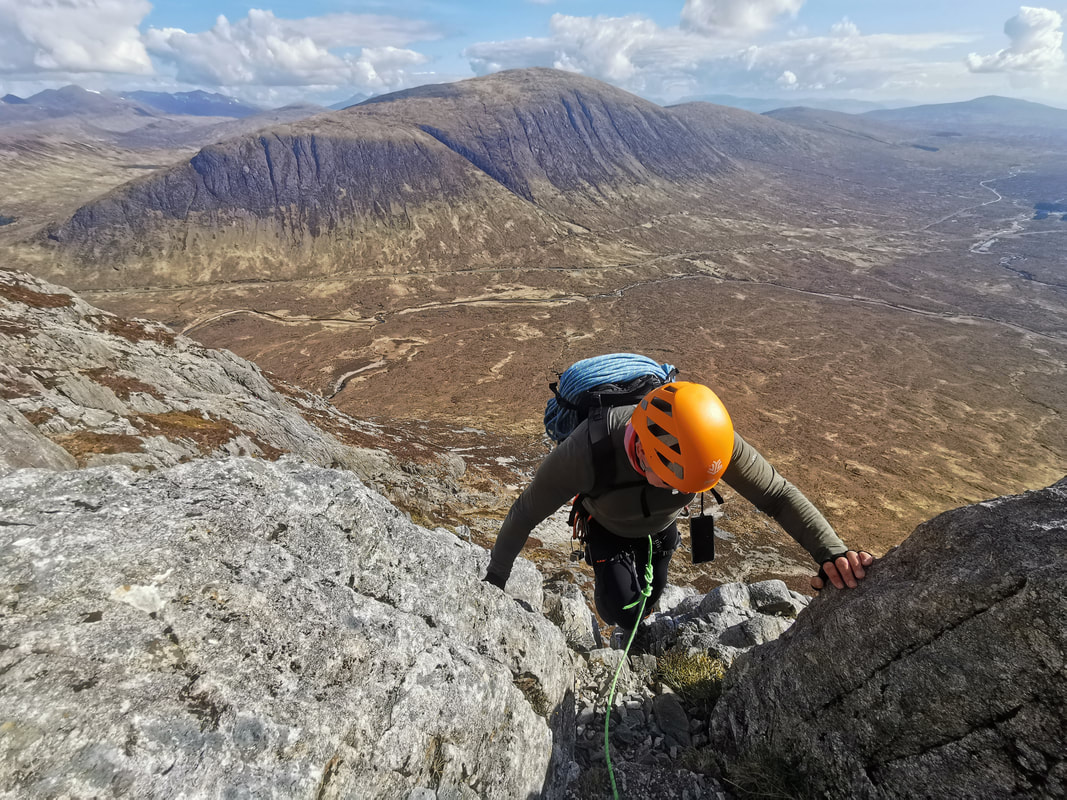
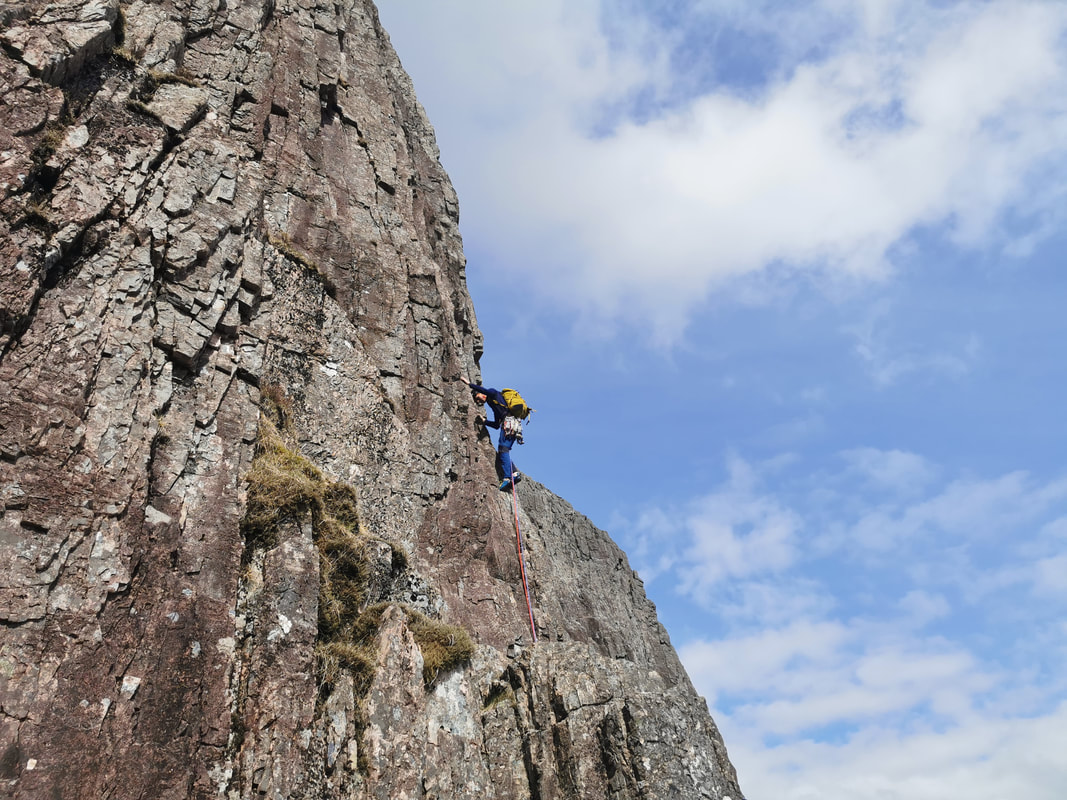
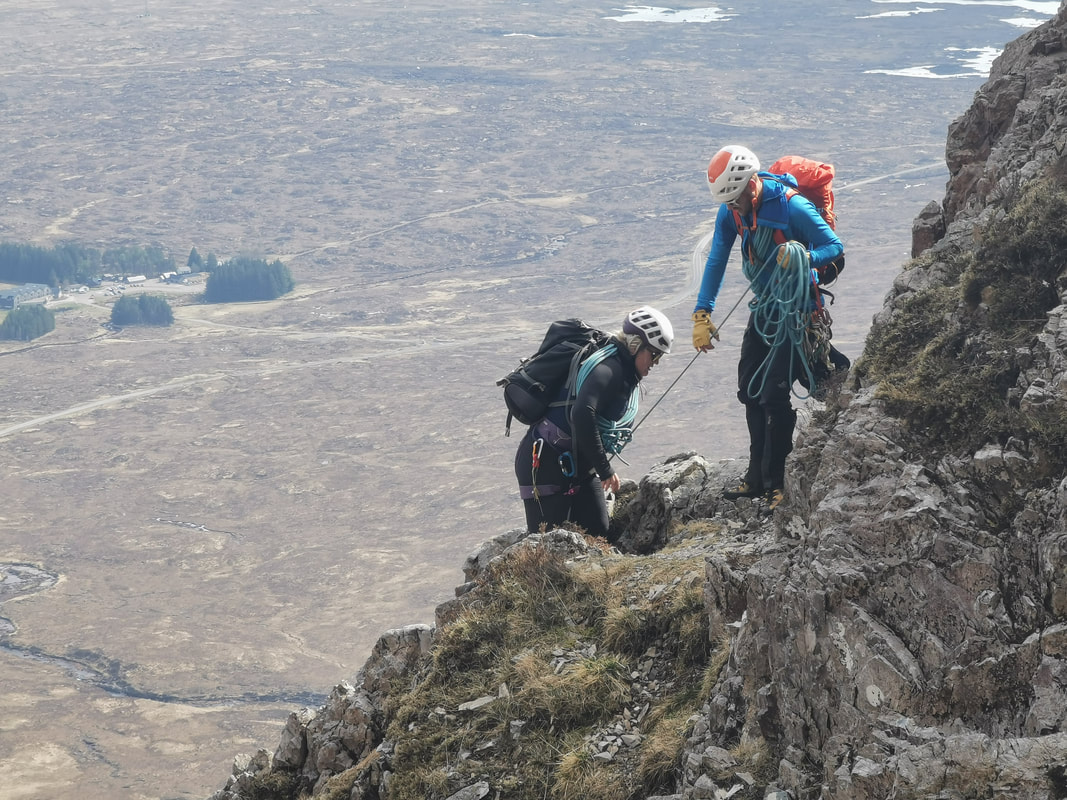
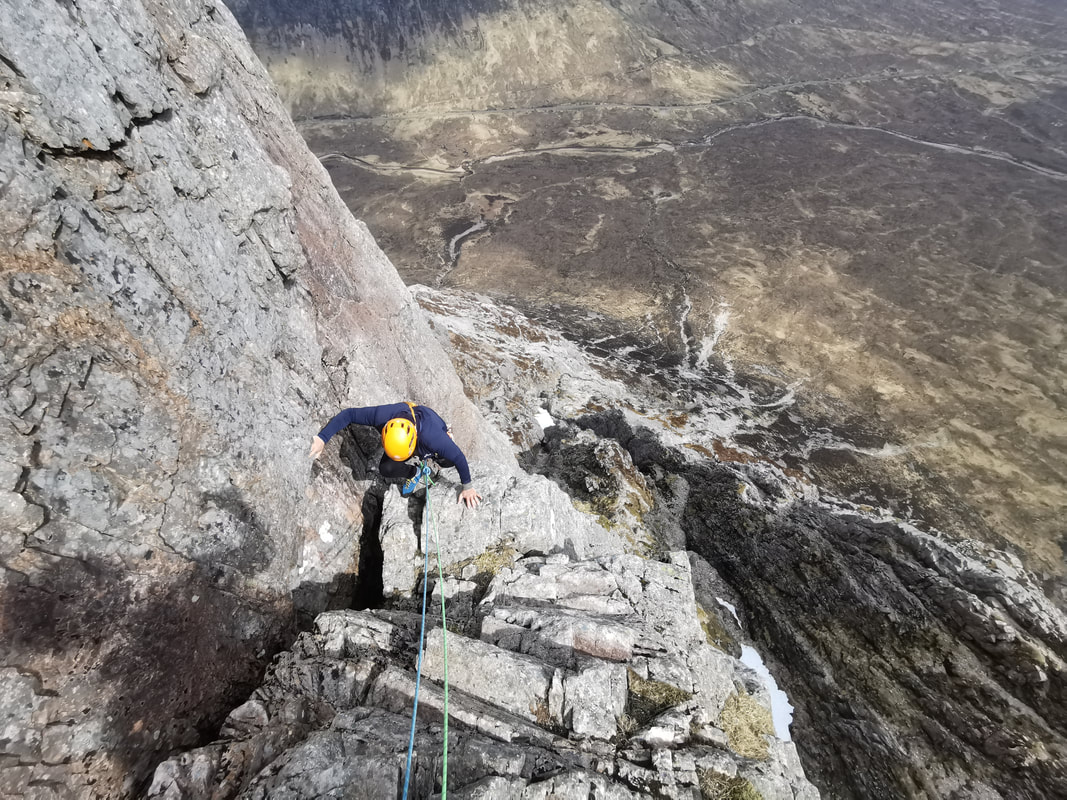
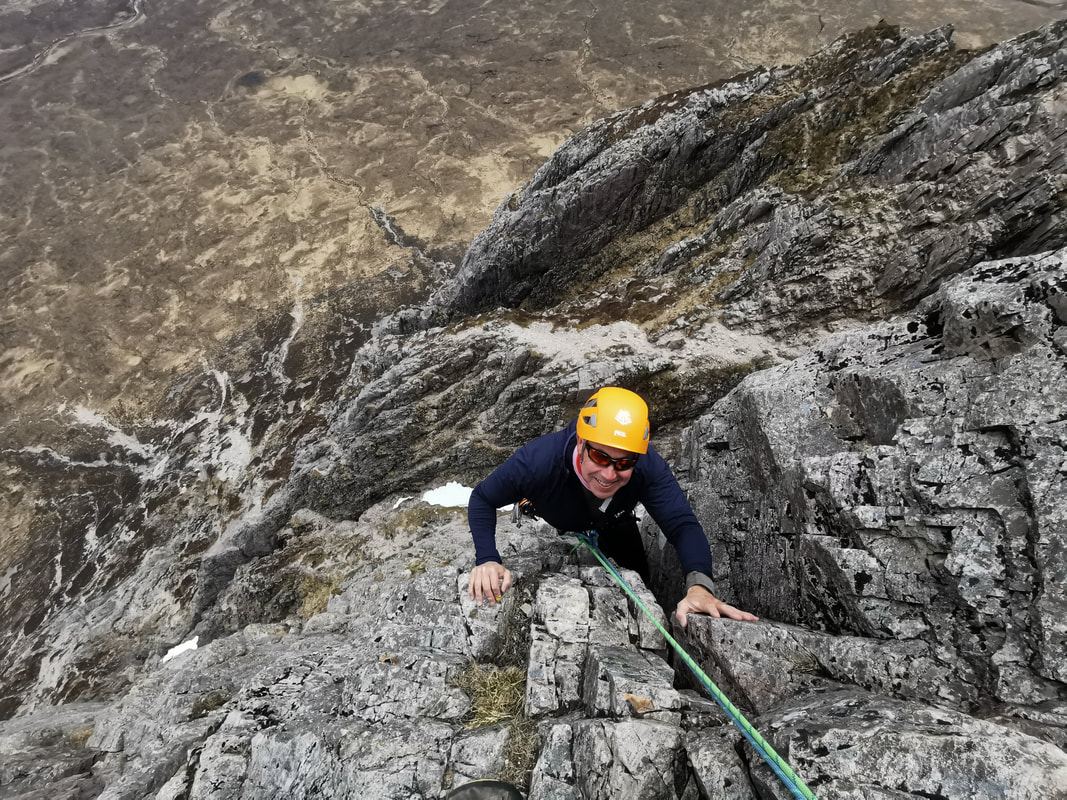
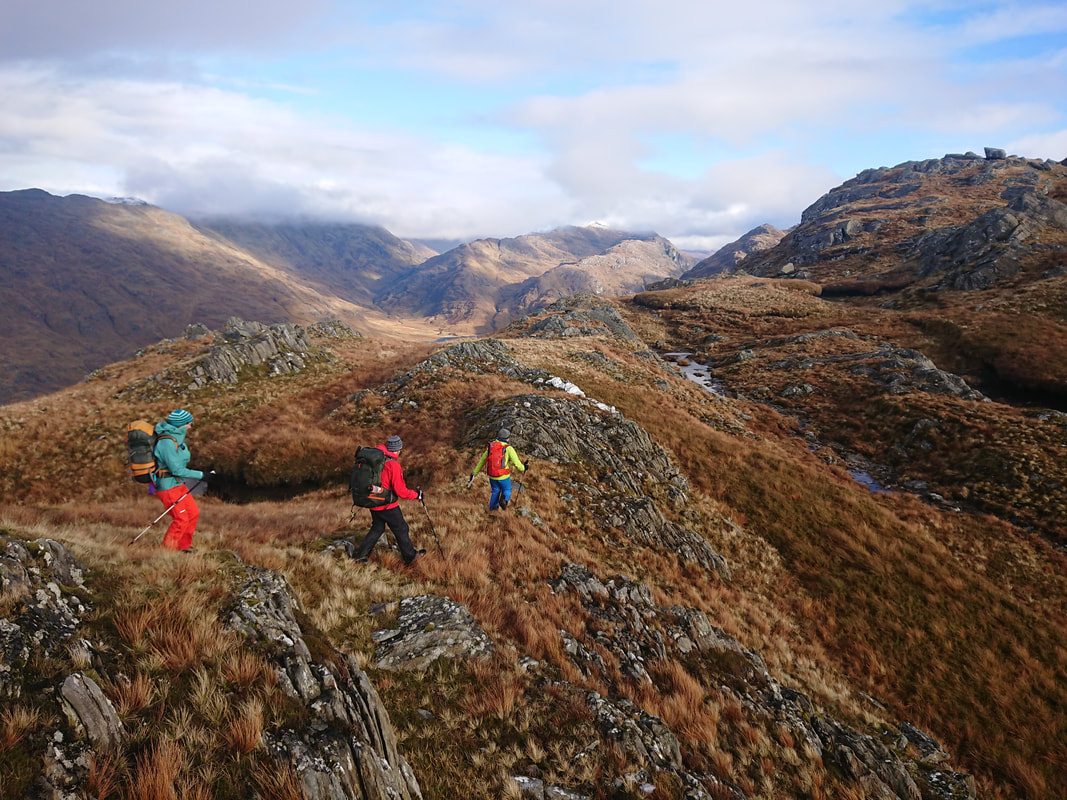
 RSS Feed
RSS Feed
